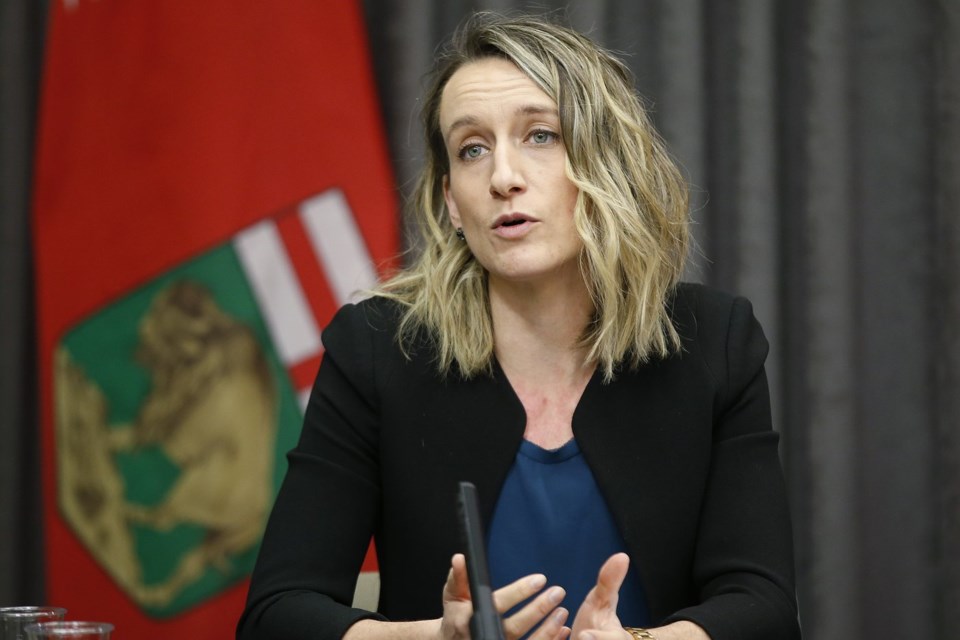HALIFAX — Recruiters say there's been a surge of interest from American doctors considering moving to Canada since the election of U.S. President Donald Trump in November.
Katrina Philopoulos, physician recruitment director for Nova Scotia Health, says 27 American doctors are in serious negotiations to move, talks that have so far resulted in one person being hired and a second who is expected to move to the province next year.
In an interview Friday, Philopoulos said her health agency's message to doctors isn't overtly political and is aimed at anyone "ready to make the change" after Trump's victory.
"It was an opportunity for us to focus on the United States as one of our priorities," she said, adding that the province has been ramping up its U.S. recruitment steadily in recent years.
Manitoba's health minister, Uzoma Asagwara, said in an interview Thursday the province's recruiters are talking to about 12 American physicians, and have hosted webinars for about 50 nurses. Recruiters in Manitoba, which has one of the country's lowest numbers of physicians per capita, are going to intensify their U.S. efforts in the coming weeks, Asagwara said.
"Every part of the solution matters. We as a government have made a commitment to adding a total of 400 doctors in our first mandate," the minister said.
Dr. Rohini Patel said in an interview that her firm — CanAm Physician Recruiters — has added 347 new U.S. physicians to its network over the past year, including 141 in the past three months, roughly double the number over the same period the year before.
She says the doctors she's interviewed are not merely inquiring but are actively interested in moving, adding they are "not picky" about what region of the country they might practise in.
Dr. Joss Reimer, president of the Canadian Medical Association, said the growing interest is linked to the frustration of U.S. doctors with private insurers, and discontent from obstetricians and family doctors worried about "political interference" in their practices.
She said a rise in the number of U.S. physicians moving north of the border could become part of the solution to addressing what Health Canada estimates is a shortfall of about 23,000 family physicians in the country.
"It's early to know whether the numbers (of U.S. physicians coming) will be as high as the interest there's been, but I think it's fair to assume there will be some physicians coming to Canada," said Reimer.
U.S. cuts to health research funding is helping to push American doctors to leave their country, the medical association president said. “Any time you slash funding to research … doctors are going to respond to that. Science is something we’re deeply trained in, and evidence-based medicine is the foundation of everything we do when we’re caring for patients,” she said.
“Anywhere where politics gets into medicine, that becomes a frustrating place to work."
As well, Reimer said there’s been some interest from U.S. family doctors and obstetricians because of restrictions on abortions and gender-affirming care in some parts of the country.
According to the Medical Council of Canada, which assesses and validates physician credentials, over the past six months about 120 medical graduates per month in the U.S. have opened an online account on its website — an initial step in pursuing a Canadian licence. That's up from about 10 new online accounts opened every month by American graduates for the same time period the year before.
Dr. Alison Carleton, an American family physician who immigrated to Manitoba to work in the community of Winnipegosis in 2017, said in an interview Thursday that she's helping the province's recruitment campaign by preparing literature for her American colleagues about the benefits of practising in Canada.
"I think that most doctors care about people and they believe in science and I think, right now, those things are not values being held up in the United States," she said.
Carleton said she was attracted by Canada's public health system, rather than what she referred to as "the game" of dealing with private-sector insurers that at times wouldn't cover the costs of care her practice billed them.
Laura O'Brien, the manager of recruitment services at Nova Scotia Health, said her team also targeted their campaign at American nurses and other health workers since the November election, and has achieved strong results.
She estimated there have been 500 inquiries from American nurses about coming to Nova Scotia, with about 200 expressions of interest considered to be "serious." To date, five registered nurses from the U.S. have been hired to work in intensive care units and emergency departments across the province, O'Brien said.
"The health-care professionals and nurses (expressing interest) are concerned about the changes and the uncertainties in the American health-care system," she said.
This report by The Canadian Press was first published April 4, 2025.
Michael Tutton, The Canadian Press



